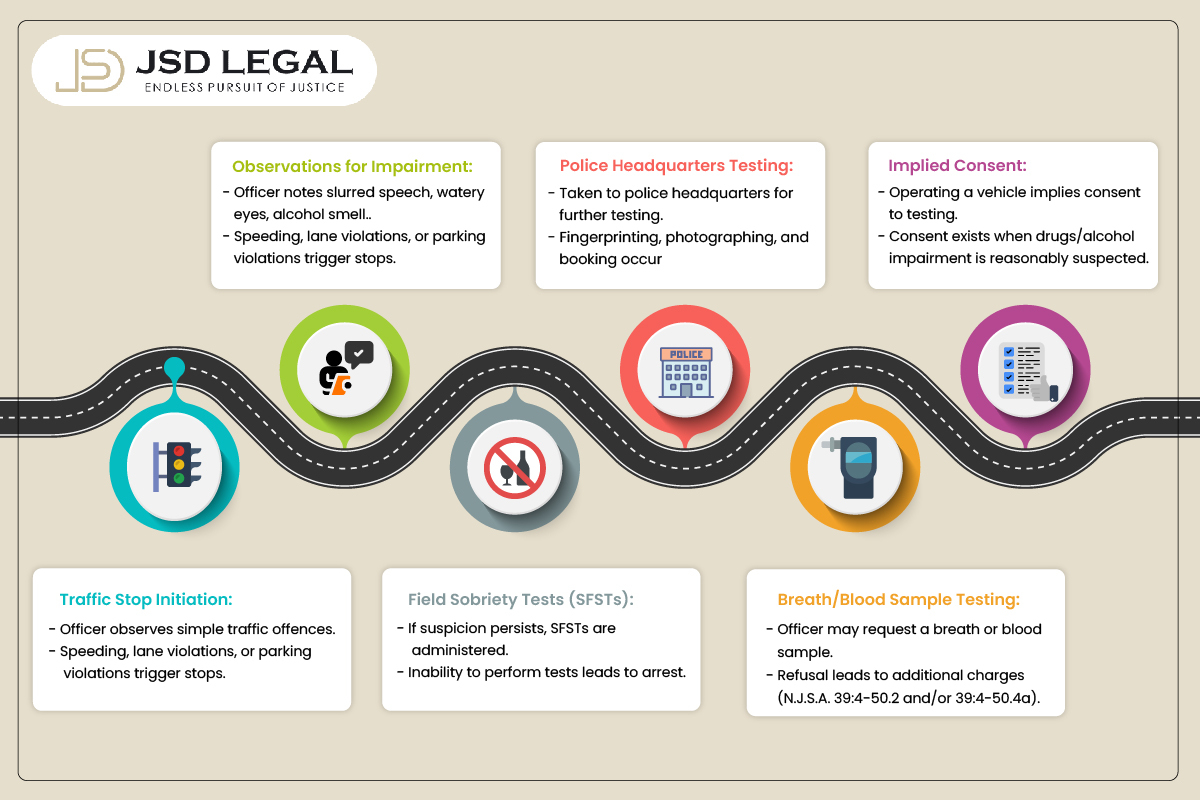
Many people are confused about DWI cases in New Jersey because it is not a criminal offence. In New Jersey, DWI is referred to as a “quasi-criminal” offence. This means it is not technically a criminal offence, but it shares many of the same characteristics of a criminal charge.
You should understand if you are charged with DWI in New Jersey, you are not entitled to a trial by jury because you are not facing a criminal offence. As such, any DWI, traffic violation, or ordinance violation heard in municipal court will be decided by a single municipal court judge, as opposed to a jury of your peers.
Most importantly, even though a DWI is technically a traffic offense, it does not exempt you from serious penalties and consequences if you are convicted. This is especially true if you are convicted of multiple DWI offences.
A DWI conviction can result in a jail sentence, thousands of dollars of fines, and lengthy suspensions of your driving privileges. What’s more, a DWI arrest 21 may come up on a background check, which can have consequences on your immigration status, if that applies to you.
Something else to keep in mind is that a DWI conviction can lead to criminal charges when certain aggravating circumstances are present. These are aggravating.
factors could include:
Being Charged With A DWI
For the majority of cases, a DWI investigation first starts with a traffic stop. Typically, the officer who initiates the traffic stop will claim to observe an individual who has committed a simple traffic offense such as speeding, crossing over a double yellow line, failing to stop at a traffic signal, or even being illegally parked on the side of the road.
The alleged traffic offense will give the officer grounds to initiate a traffic stop. When the officer approaches the individual in the vehicle, certain observations can give the officer reason to suspect that you may be under the influence. This could include slurred speech, watery eyes, the smell of alcohol, and whether or not you admit to consuming any alcoholic beverages or using any illicit drugs before being stopped.
Based upon the officer’s observations, training, and experience, he or she may then ask you to step out of the vehicle to administer what is commonly known as standard field sobriety tests (SFSTs). If you are unable to perform these tests properly, you will then be arrested for suspicion of driving under the influence and brought down to the police headquarters for further testing.
Once at headquarters, you will be fingerprinted, your photograph will be taken, and you will be booked for processing. The officer will likely have you answer additional questions and have you submit to either a breath or blood sample testing.
You should note: if you refuse to take a breath sample during a DWI arrest you may be charged with an additional offense for Refusal under N.J.S.A. 39:4- 50.2 and/or 39:4-50.4a.
The operation of a motor vehicle on any public or semi-public road, street, highway, or other areas in the state of New Jersey carries an implied consent that you will submit to testing. This consent only exists when there is the first reason to believe that either drugs or alcohol are in your system and that they have inhibited your ability to safely operate your vehicle.
For more information please contact our office for a FREE CONSULTATION! Get the information and legal answers you are seeking by calling (908) 421-3668 today.
Disclaimer: The information you obtain at this site is not, nor is it intended to be, legal advice. You should consult an attorney for advice regarding your individual situation. We invite you to contact us and welcome your calls, letters and electronic mail. Contacting us does not create an attorney-client relationship. Please do not send any confidential information to us until such time as an attorney-client relationship has been established. No representation is made that the quality of the legal services to be performed is greater than the quality of legal services performed by other lawyers.